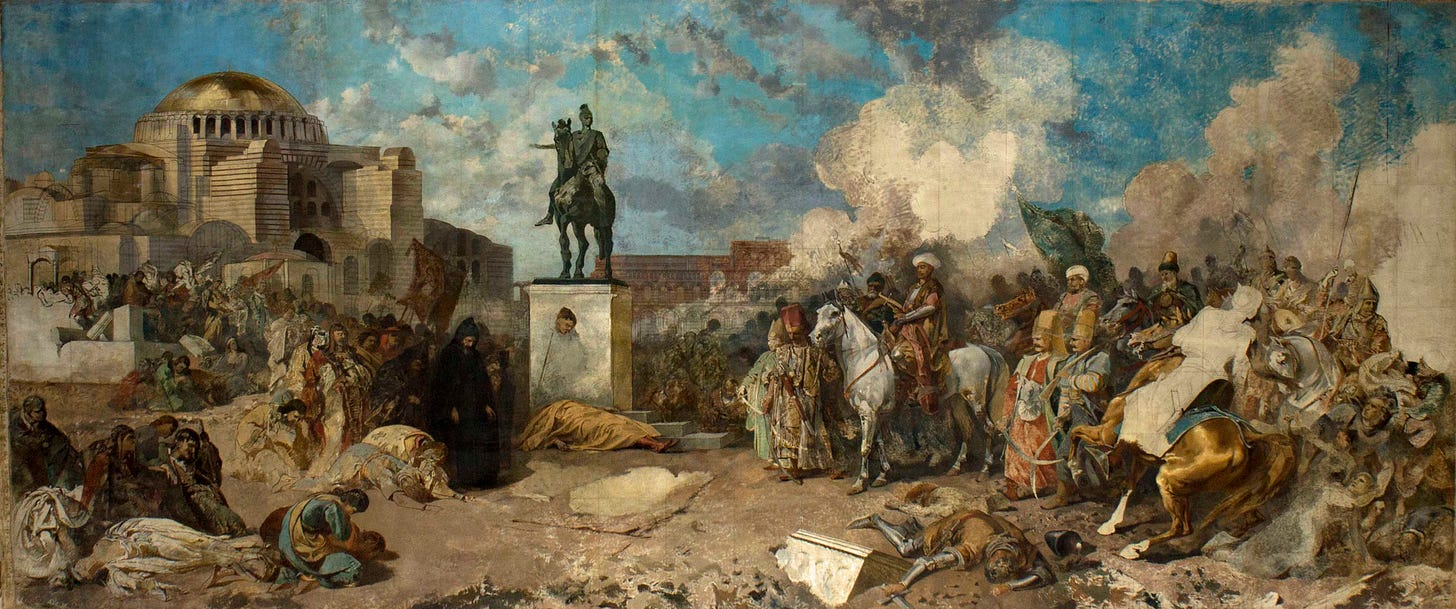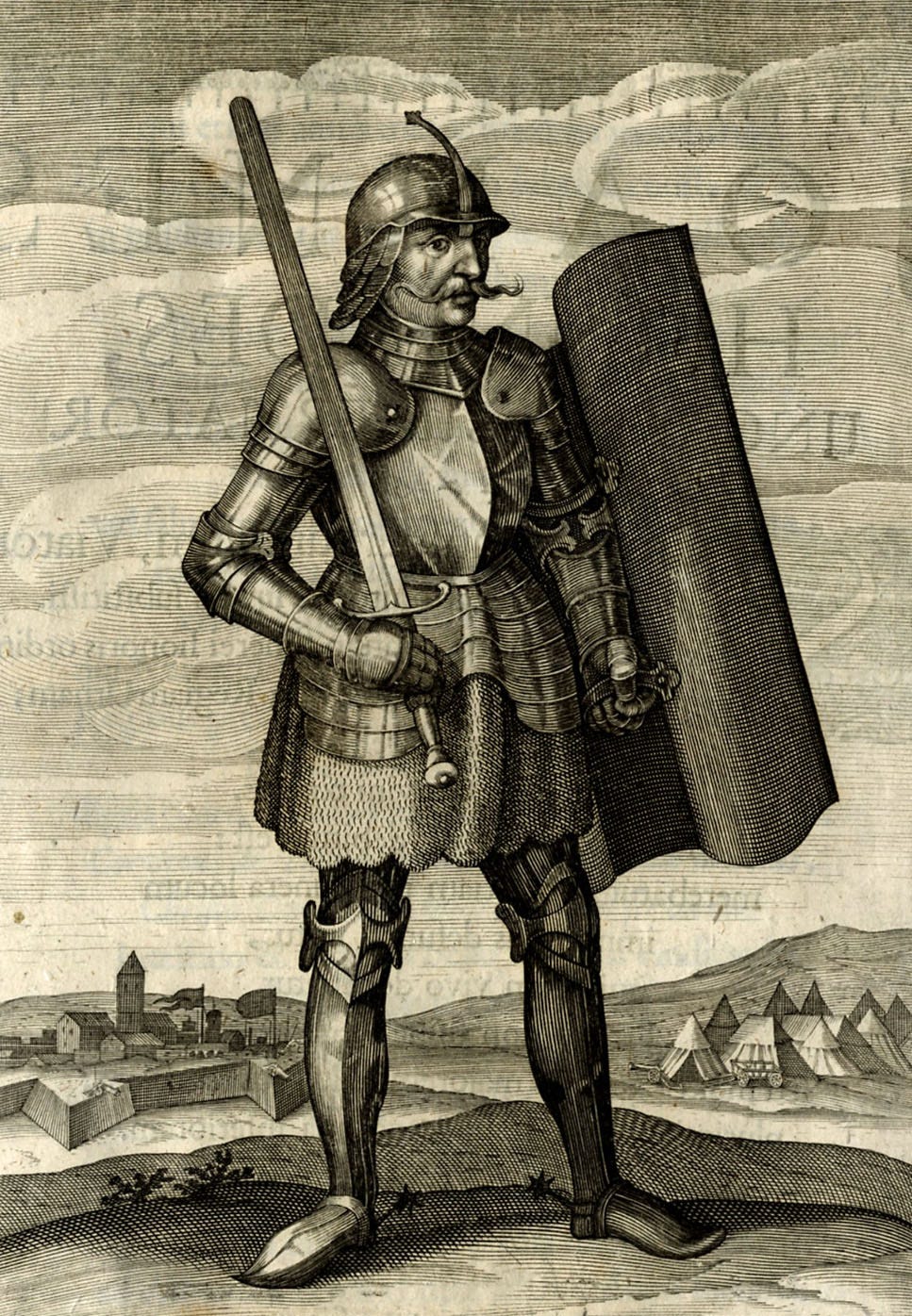When Fortune Favored the Bold
When Constantinople fell in 1453, the Ottoman Turks seemed unstoppable. Just three years later, János Hunyadi showed that no enemy is invincible...
“If you can keep your head when all about you
Are losing theirs and blaming it on you…
Yours is the Earth and everything that’s in it,
And — which is more — you’ll be a Man, my son!”
Rudyard Kipling, If
If keeping calm when others are panicking is indeed a test of manhood, it is a test that few have passed more spectacularly, and with greater results, than János Hunyadi, one of Hungary’s greatest heroes, and father of one of her greatest kings.
Today, we explore the fearsome trial he faced, and how his actions provide a model of leadership in a crisis when others are reluctant to act.
Such skills, ultimately, lay at the foundation of any human endeavour, whether protecting your family, business or even nation. In the case of Hunyadi, the stakes could scarcely have been higher, as the fall of Constantinople — the greatest bastion of Christianity in the East and last remnant of the Roman Empire — three years earlier had left his country next in line to face the Ottoman onslaught, and potential annihilation.
Faced with an unholy trinity of humiliation, incompetence, and betrayal, his was a story of heroic defiance, and a reminder that sometimes, fortune really does favour the bold…
Chaos in Christendom
The fall of Constantinople to Sultan Mehmet II, on the 29th May 1453, triggered a wave of despair and fear that washed like a tsunami across the European continent.
For centuries, the Eastern Romans had been holding the Turk at bay, invariably with tepid aid from the West, and at times — most infamously in the Fourth Crusade of 1204 — outright opportunistic betrayal. With the chance to contain them within Asia Minor wasted, the Ottomans were armed, mobilised and ready for war, with the richest city in the known world now the seat of their new empire.
“A Greek nation, once barbarian, returns to barbarism in our own time once again, now that the empire of the Greeks has been destroyed and the Turks hold sway”
Aeneas Silvius Piccolomini (later Pope Pius II), De Europa
For the Christian realms in the East that now shared a border with the aggressively expansionist Sultan, the outlook was exceptionally bleak, as trickles, and then torrents, fled the Balkans before the attack that was surely imminent.
Emperor Frederick III at once summoned the Imperial Diet to discuss a course of action, while Pope Nicholas V issued the Papal Bull Etsi Ecclesia Christi, calling for a pan-Christian crusade to liberate the fallen lands. Yet many Western states, intimidated by the now vast armies at the Sultan’s command, which had vanquished near everything that dared stand against them, began looking to their own self-preservation.
To the immense frustration of Sienese Bishop Aeneas Silvius Piccolomini — the foremost cleric in the Holy Roman Empire and future Pope Pius II — the Church’s determined call to arms was landing upon ears sealed by fear. When Nicholas V died in 1455, Callixtus III strongly reiterated his predecessor’s exhortations, dispatching ambassadors to England, France, Germany, Hungary, Portugal, and Aragon to implore their princes to join the Crusade, while the Papacy itself devoted itself to raising funds for the cause.
Extravagant promises were made in Germany to help those now on the frontline, particularly Hungary, only for them to be mysteriously forgotten amid inertia, mutual suspicion and petty rivalries. The results of this crippling inaction were plain, for the Ottomans, less than twelve months after the seizure of Constantinople, had already commenced the invasion of Serbia.
It was then that János Hunyadi, the battle-hardened Captain General of the Kingdom of Hungary, could take it no more. What he did next would stun all of Europe, but shock nobody who knew what kind of a man he was…
Building Credibility
Rising from the son of an obscure Transylvanian knight to kingmaker of Hungary, János Hunyadi’s rise was so meteoric that it is still a matter of speculation to this day where he even came from.
His dynastic name, after all, had shallow roots, for it is derived from Hunyad Castle in Transylvania, a fiefdom granted to his father by King Sigismund around the time of János’s own birth in 1406. As a decidedly minor nobleman therefore, with neither the prestige of name nor extensive resources to work with, János Hunyadi would have to rely on other qualities to emerge from the shadows — qualities the future Pope Pius II would describe as “supple intelligence and lofty spirit” (Piccolomini, De Europa).
Shrewd and pragmatic, Hunyadi was acutely aware of the danger the Ottomans posed well before Constantinople fell, having witnessed firsthand what they were capable of on the southern frontlines. Years of service for a succession of Hungarian and allied Serbian lords, from the powerful Újlaki family to Despot Stefan Lazarević of Serbia, acquainted him with military command at the most junior levels.
His commitment to discipline, both his own and that of his men, complemented by his devout faith — for it was not uncommon for Hunyadi to pass hours of the night in the chapel praying — strongly endeared him to his peers, resulting in his elevation to the miles aulae, or king’s household knights, at barely twenty years of age. Enabled by the travel his membership of Sigismund’s entourage permitted, Hunyadi would be inspired both by the cultural flourishing that was occurring in Italy, and impressed by the unconventional military tactics employed by the Hussite rebels in Bohemia, especially the latter’s remarkably effective use of wagons as impromptu fortifications.
His loyal and competent service to Sigismund, and his successors Albert II and Wladyslaw, saw Hunyadi rewarded with ever more extensive estates in the Hungarian kingdom. The resulting increase in revenues permitted him greater freedom of action, and the means to recruit ever larger companies of troops, all means he would soon employ to spectacular effect.
It was fortunate indeed that he did, for his country was about to face the greatest crisis in its history — one in which the unwillingness of his superiors to heed his advice would soon lead to one of the greatest military disasters of the century.
How Hunyadi chose to respond to this disaster, however, is what earned him his reputation as one of Europe’s greatest heroes, and forever enshrined his legacy…





